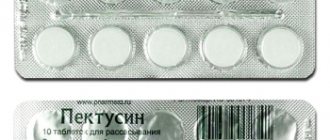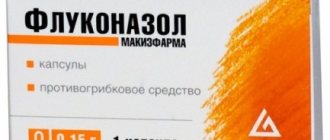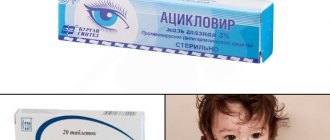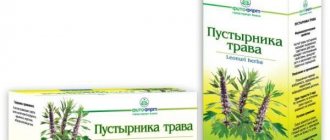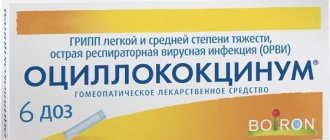Children are most susceptible to various diseases. Their immune system is not fully formed and is not able to provide adequate resistance to harmful microorganisms. The new generation drug Polysorb is a great help in such situations.
It differs from other compositions in its excellent sorption ability. It does not contain additives or dyes, does not penetrate the bloodstream and does not harm the walls of the stomach and intestines. The product is approved for use even in newborn babies.
Polysorb is a sorbent that enjoys well-deserved popularity. With its simple composition, the drug effectively helps in the treatment of many diseases. With its help, toxins that are formed during inflammation or that get there during poisoning are removed from the body.
Composition and release form
Polysorb is produced in the form of a white powder.
It is not recommended to take it orally in its original form - the medicine must be diluted with water .
For ease of use, Polysorb is produced in plastic containers, the volume of which is 12, 25 and 50 g, and in paper bags. The latter are produced in a single dosage (3 g), required by an adult.
The main active ingredient of the drug is colloidal silicon dioxide.
The component is chemically converted from the mineral silica, which is often used in homeopathic medicine in the treatment of various diseases.
The drug does not contain any foreign substances. The product has no smell or taste.
Do you know that there are drugs that can strengthen the human immune system? On our website you will learn everything about the drug Cytovir and instructions for using the syrup for children.
In our next article, read how to take Paracetamol syrup for children correctly and how much this drug costs in pharmacies.
Find the dosage rules for the antipyretic drug Nurofen in syrup for children, the composition and pharmacological properties of the drug here.
Indications
The doctor can prescribe the drug for various infectious and toxic-infectious diseases . The sorbent can be used not only in a diluted state, but also externally in powder form.
Indications for use of Polysorb:
- acute poisoning with food, alcoholic beverages, chemicals, drugs;
- intestinal infections, including acute ones, caused by microorganisms;
- chronic intoxication;
- diarrhea of infectious and non-infectious origin;
- to maintain healthy intestinal microflora in complex treatment;
- allergic reactions;
- for external use for inflammatory and purulent diseases (wounds, burns, appendicitis, adnexitis), for skin ulcers, acne, dermatoses;
- increased level of total bilirubin in viral hepatitis;
- renal failure in the chronic stage (with elevated levels of urea, uric acid, creatinine).
It is recommended to use Polysorb for prophylaxis for adults and children who live in unfavorable environmental conditions, as well as for chemical production workers.
Purpose of the sorbent
When is it necessary to use the Polysorb product for allergies?
Doctors' reviews about this remedy agree on one thing: the medication should be used in combination with antihistamines. Only in this case will the healing of an allergic reaction be truly effective. The instructions for use recommend using Polysorb for the following pathologies:
- poisoning and intoxication;
- alcohol intoxication and hangover;
- viral and bacterial infections;
- infectious diseases of the intestinal tract and other organs involved in the digestive process;
- dysbacteriosis and diarrhea.
The medication is used for various types of allergies: food, pharmaceutical.
The sorbent is also prescribed for intolerance to animal hair, during the flowering of ragweed and other irritating plants. Manifestations of allergies may be as follows:
- runny nose and nasal congestion;
- lacrimation and conjunctivitis;
- cough;
- skin itching;
- rash on the body and mucous membranes.
Contraindications
Polysorb is one of the drugs with a minimum of contraindications.
Polysorb is not recommended for use by children only in the following cases :
- the presence of a stomach ulcer;
- duodenal ulcers;
- stomach bleeding;
- if the patient cannot tolerate the main active ingredient.
The drug Polysorb is allowed to be taken by adults, children with intestinal infections, including newborns up to one year old, pregnant and lactating women.
How it works for allergies, poisoning, vomiting and diarrhea
Polysorb is a sorbent preparation of inorganic origin. The medicine can act on any substance that has entered the body.
In addition to the sorbent effect, it has a detoxifying effect. The latter makes it possible to remove those toxic chemicals that entered the body with food, water or formed inside.
Polysorb also suppresses:
- microbes, viruses, fungi;
- food allergens;
- medicines;
- salts of heavy metals;
- poisons, chemicals;
- alcohol and substances formed during its breakdown.
Polysorb fights substances formed directly inside the body:
- bilirubin;
- substances of biological origin that develop endotoxemia;
- urea;
- cholesterol.
The versatility of its action allows the sorbent to fight the symptoms of the most severe poisoning .
The use of Polysorb allows you to reduce the intake of many drugs prescribed for the treatment of a particular disease. In European countries, it is recommended to drink the sorbent even with the development of flu and colds.
The medicine can fight not only viruses that have entered the body, but also relieve such unpleasant symptoms as muscle and headaches, weakness, autonomic disorders, etc.
Many European therapists advise taking Polysorb even with elevated body temperature, fever and chills.
Additional information about the medicine
The manufacturer warns that if you use the medication for a long time (more than 2 weeks), the balance of necessary substances in the body may be disrupted. This is especially unsafe for children. Therefore, treatment of an allergic reaction to these products must be prescribed by a doctor. If the patient accepts other pharmaceutical compounds, then this must also be taken into account.
As you already understand, “Polysorb” removes from the body not only harmful substances, but also useful ones. The effect of honey formulations is also eliminated or reduced. Therefore, the sorbent must be used separately from other drugs. The break between taking them should be at least 1 hour, and preferably two.
The instructions for use of the drug "Polysorb" indicate that it can be used externally. But in this case it is used to stop minor bleeding.
It is not possible to cure allergies in a similar way.
Dosage for different ages
The dose of Polysorb for children is determined depending on weight using the following formula: the baby’s weight is divided by 10. The result is the amount that the child needs to take at a time in grams. The maximum single portion is given 3 times a day.
For adults, the dosage of the sorbent depends on the severity of poisoning. Patients are allowed to consume up to 20 grams. per day. This is the maximum amount, it is divided into 3-5 doses.
For what diseases is the nootropic drug Pantogam prescribed - you will find all this here on the website!
Do you know how to properly prepare Augmentin suspension for children, how does the antibiotic work on a child’s body? Find out from this article.
You will find out everything about the drug for children Pirantel in the form of a suspension: how effective the drug is in the fight against parasites and what reviews from parents say.
How to use
How and when to give Polysorb to children? See table.
| Weight, kg | Single dose | Amount of water, ml |
| up to 10 kg | 0.5-1.5 tsp. per day | 30-50 ml |
| 11-20 kg | 1 tsp. | 30-50 ml |
| 21-30 kg | 1 tsp. "with the top" | 50-70 ml |
| 31-40 kg | 2 tsp. "with the top" | 70-100 ml |
| 41-60 kg | 1 tbsp. l. "with the top" | 100 ml |
| For 60 kg | 1-2 tbsp. l. "with the top" | 100-150 ml |
Polysorb should be taken 1 hour before meals (taking medications) or an hour after. In case of allergic reactions, it is recommended to drink the sorbent immediately before meals.
The duration of treatment depends on the severity of the disease. In case of poisoning or diarrhea in a child, Polysorb is used for 3-5 days.
For more severe symptoms, treatment is extended to 10-14 days (allergies, dermatitis, renal failure, viral hepatitis). Courses should be repeated every 2-4 weeks.
Polysorb for children instructions
Many young parents wonder whether Polysorb is safe for infants.
Since the sorbent is prescribed to infants for diathesis, atopic dermatitis and diarrhea, this problem is relevant for almost any mother, because every baby encounters many different disorders in the first year of life.
There is nothing wrong with this - the child learns to live in the world, and the body is forced to tune in, train and gradually get used to the surrounding conditions.
The pediatrician is always involved in finding out the causes of the disorder. If an infant is sick, it is imperative to see a doctor.
Since the immune system and most body systems are not yet fully formed, the baby is very vulnerable. And doctors primarily visit children under one year old, reducing the risks to the health of the newborn patient.
Each pediatrician has a list of main problems for which it is necessary to prescribe a sorbent:
- For allergies
- For diathesis
- For diarrhea
- In case of poisoning
- For rotavirus
- When vomiting
If necessary, the list can be expanded, but even the most knowledgeable and confident mother should not prescribe a sorbent if the doctor has not prescribed Polysorb. And vice versa, when there is a prescription, the drug must be given, carefully observing the dosage.
Of course, in the summer there are more risks for children, especially if the family goes to the country.
In this case, you can discuss in advance with your pediatrician what to do in case of symptoms of allergies or dermatitis, as well as in case of diarrhea - in a baby, diarrhea leads to dehydration very quickly, and the life and future health of the child directly depends on the reaction of the parents. The doctor will also explain according to what scheme and in what dosages the sorbent is given to children, and when treatment can be safely stopped.
Polysorb is indicated for use in children from birth, and, as a rule, newborns do not have problems taking the drug. Numerous reviews from pediatricians and young mothers confirm that allergic itching goes away quickly, diarrhea and rhinitis go away without consequences, and, just as importantly, this drug does not cause constipation.
Polysorb is safe for children if the dosage is followed - it is important to remember this when starting treatment. The instructions for use prescribe for children to give no more than 1.5 teaspoons of the drug per day, and the optimal amount of water in this case is up to 50 ml.
Since Polysorb can and should be given in several doses, you should first calculate how much powder to use at a time.
Pediatricians take a more stringent criterion: the weight of a young patient must be divided by 10 - this will be the maximum permissible daily dosage in milligrams.
Treat with love
Polysorb for infants can be diluted not with water, but with expressed breast milk, so it is much easier for babies to drink insoluble sorbent particles.
How to give the drug to children from six months of age, when the patient may already object to a suspension in milk, is a separate problem.
Some mothers add powder to juices and jelly, others offer the drug from a spoon or sippy cup - the main thing is to give the sorbent so that the baby drinks it.
The dosage calculated according to the instructions is usually safe and most effective, but you can additionally calculate the amount of dry matter together with your pediatrician to avoid errors in treatment. The advantage of Polysorb is that a small overdose does not have any long-term negative consequences even for infants, and this makes the drug the most preferable.
Not a panacea
It is necessary to use a sorbent when treating an infant for diarrhea and allergies, but it is important to remember that the sorbent only binds dangerous compounds and removes them from the body. That is, it does not have a direct therapeutic effect, and the cause of the disease usually cannot be cured with Polysorb.
The fact that the rash has disappeared, bowel movements have improved, and the runny nose has stopped bothering me is, of course, a good sign. However, if the doctor has prescribed other medications in addition to Polysorb, you cannot stop treatment ahead of time.
Polysorb alleviates the baby’s condition, makes the body more susceptible to treatment, but also removes some of the healing substances.
And most importantly: do not try to treat a baby yourself, especially based on reviews from the Internet or from friends.
All babies are different, they all have different levels of susceptibility to treatment, different resistance to viruses and allergens.
And only visiting a doctor and full observation during the treatment process can ensure the child not only a speedy recovery, but also the absence of delayed consequences.
To relieve intoxication, which is caused by a high accumulation of nitrogenous compounds, such as:
- Creatinine.
- Urea.
- And urinous acid.
The drug is used in a very long course, which lasts more than a month. During the treatment period, it is necessary to apply up to 4 g of the medicinal composition per day. And these courses for renal failure must be repeated every 4 or 6 weeks.
In Europe, this powder is used to treat colds. This is due to the fact that toxic substances that are formed during the disease process are often found in the intestines. It happens that they are associated with a sorbent.
Thus, they will not be able to be absorbed back into the blood, while the load on the immanent system is greatly reduced.
Binding and removing toxins with a medicinal drug is very effective for children. If a medicinal powder is used, then antipyretic medications are not needed. The temperature returns to normal on its own.
How to accurately use Polysorb to treat colds, flu and ARVI in children? The medicinal suspension is taken 3 grams 4 times a day. The micropowder must be used within 10 days.
The dosage form of the powder is used for comprehensive therapy of various diseases. In this case, it is Polysorb that needs to be used, and not any other sorbent. Because the medicinal powder has the ability to bind a large number of toxins.
The drug Polysorb is indicated for children from birth. As a rule, Polysorb is used for the following diseases:
- Polysorb for allergies.
- For food poisoning.
- With diathesis.
- For intestinal infection.
- Intestinal dysbiosis.
- Acute poisoning and many other diseases that affect children.
Polysorb should be given to children very carefully, following the instructions. Polisorb for children instructions will be discussed in more detail below. Polysorb is given to children for symptoms of intoxication, which include abdominal pain, nausea, headache, fever and vomiting.
The required proportion of medicinal micropowder should be diluted in half a glass. Only fresh diluted suspension should be used. The drug is given to children 1 hour before meals or other medicinal forms. Or the powder must be given to the child 2 hours after using the food.
- To properly dose the drug, you must use the following ratio:
- One teaspoon contains 1 g of medicinal product.
- And one tablespoon includes up to 3 g of the dosage form of the suspension.
The correct dosage of medicinal powder must be determined according to the infant’s body weight. To do this you need to use a very simple formula. The weight of a baby under one year old must be divided by the number 10. The accepted figure will show what is the most permissible dose for using the drug. You can give the product to your child no more than 5 times a day.
Drug
used to prevent diathesis, as well as to eliminate digestive disorders and allergies. The dosage form of the drug is used once, only if any violations occur.
Polysorb MP has the ability to bind harmful bacteria. This means that the good flora is more firmly fixed between the intestinal villi. If pathogenic flora multiplies abundantly, then it is located primarily in the intestines.
The dosage form of the product can be used from birth. For infants, the powder is diluted in whole milk before feeding.
If the child is older, then the micropowder can be diluted in juice or compote. It is also allowed to dilute in rottisite water before use.
Some professionals recommend using Enterosgel for babies. It is approved for infants from 1 month. Enterosgel is a selective sorbent that does not disturb the unbalanced and weak intestinal microflora of the baby.
Weight up to 10 kg is usually found in babies under one year old. Accordingly, the amount of sorbent for this age is minimal. Children weighing from 11 to 20-22 kg will need a larger daily amount of sorbent; only the dose for poisoning remains unchanged, which is important to give immediately. Treatment for viral infections, allergies and chronic diseases will require about 2 heaped teaspoons per day. The drug should be diluted separately for each dose.
The problem for 2-3 year old children in this case is not the doses, but the whims. It is difficult to force a three-year-old to drink a rather strange suspension, and the child does not yet understand the word “must”.
Jelly, juices with pulp and tender soufflés washed down with plenty of water come to the rescue. Reviews show that every child has a favorite dish that can be “seasoned” with Polysorb. It is even possible to use broths - if you dilute the drug in a liquid puree soup, the sorbent will be more pleasant and easier to drink.
Older children, weighing from 21 to 30 kg, can be shown a trick with insoluble “sugar” and add Polysorb to the compote. The diet at this age is already very varied, and the possibility of exchange arises: drink a tasteless sorbent in exchange for your favorite fruit. The dosage at one time will be about 60 ml, that is, about a heaping teaspoon per half glass of water.
Senior preschoolers and junior schoolchildren weighing from 31 to 40 kg receive about 75-100 ml of Polysorb at one time. The permitted options with juices are gradually being replaced by a more correct one - with water. Teenagers up to 60 kg already receive a level tablespoon, and those who have crossed the 60 kg mark are calculated as a single dose as a heaped tablespoon.

